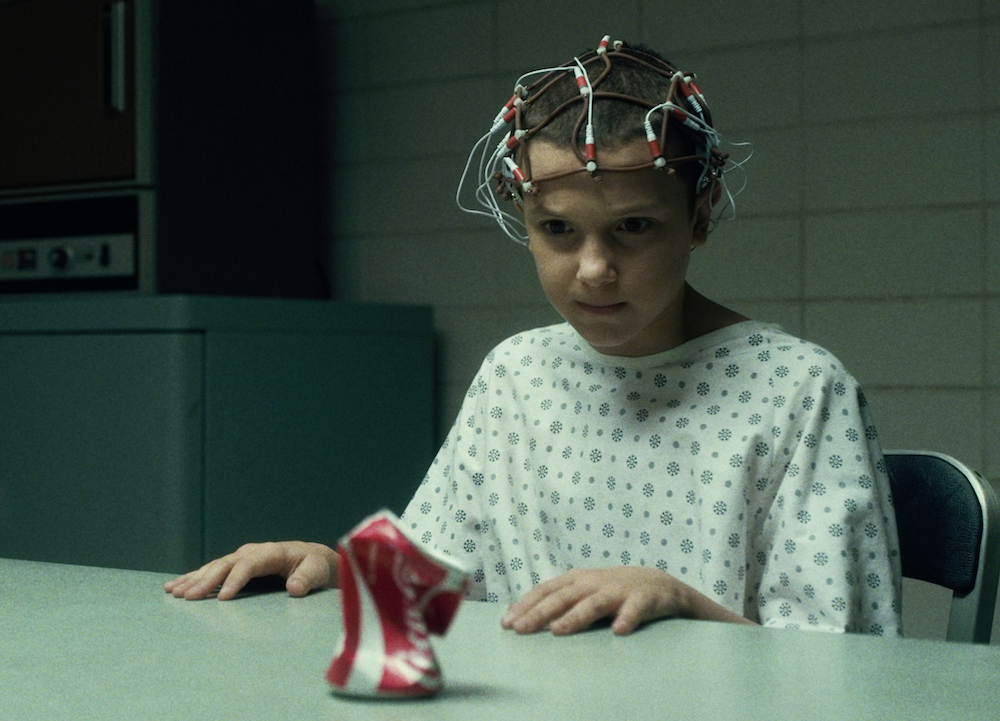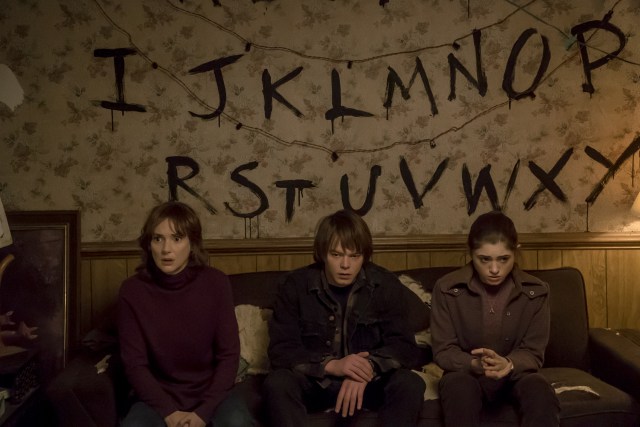
In this Golden Age – scratch that – this unbuffed Pewter Age of Television, there are good shows to be seen everywhere, and I mean everywhere. This is great for viewers, as they can watch whatever streaming platform, network archive, or premium channel they please and they’re undoubtedly assured to find at least one good show – HBO’s The Night Of, AMC’s Preacher, Crackle TV’s Comedians In Cars Getting Coffee. But at the same time, such quality variety has never been as much of a hindrance on the viewer despite the magnificent power of choice – thus instituting the unpolished Pewter Age rather than Golden Age of Television.
With such an excess of viewing outlets and the indiscernible (and nearly impossible) nature of being able to watch all of the “great” shows, it has become virtually unconscionable to ever think a show not called Game of Thrones will ever be able to dominate the cultural conversation with a fraction of as much force and fervor. And yet, here we are, in the supposed “dead period” of television progamming, and we have a new show everyone’s talking about – Netflix’s Stranger Things.
There are a multitude of angles that a culture/entertainment writer could try and take when it comes to pegging what it is exactly that makes Stranger Things Summer of 2016’s cultural touchstone, but there is one lazy attribution that has arisen repeatedly that I must squash immediately – nostalgia. Its easy to say that a show set in the 80s, following a ragtag group of Goonies-esque pre-teens and Winona Ryder against a sci-fi backdrop that has already made fans of Stephen King and Guillermo Del Toro, could be chalked up to the fact that there hasn’t been an E.T. since our glowing-fingered friend finally phoned home; but like I said, that would be easy (and lazy).
Rather than say that Stranger Things’ creators, The Duffer Brothers (Ross and Matt), set out to make the ultimate-80s homage to Spielberg and Carpenter, I’d like to think The Duffer Brothers elected to take things that interested them (and others) – horror, sci-fi, good character pacing, solid story – and place them into a wonderfully lush world. You may have noticed that I used the word “lush,” which is to say that in order to create a believable world such as the small Indiana town in Stranger Things, there are going to have to be things like a toy Millennium Falcon in Mike’s basement, along with posters for classics like Jaws and The Thing, all while Mike, Lucas, Will and Dustin play Dungeon & Dragons for ten hours straight. Sure, its all a proper homage, but don’t call it a nostalgia trip.
Not once do Mike, Will, Dustin, and Lucas say anything like “Let’s go see A New Hope” or anything that even remotely resembles kitchy fanboy speak. Instead, they exist in this finely tuned world that feels like Stephen King and RL Stine got together to make the most electrifying family fear flick in decades. In this age of hyper-realistic, noir grit television and film, a show like Stranger Things appears as though it’s set up to be written off as a slightly edgier Goosebumps, because it follows the mysterious search for an absent Will Byers, his friends Mike, Lucas, and Dustin, as well as the strange young girl, “Eleven.”
The kids in Stranger Things are the first truly exceptional feature of the show (and hopefully, the series as it moves on into its next iteration), specifically Millie Bobby Brown as Eleven and Gaten Mattazzaro and Caleb McLaughlin as Dustin and Lucas, respectively. In Brown’s case, it has to be tough being a child actor and being told you’ll be playing a super powered girl that has more or less been tortured by the CIA to become a weapon use against the USSR. Yet, somehow, Brown rises to the occasion in ascendant fashion, playing the all-powerful blank slate better and more convincingly than any other analogue. The subtle characterizations of Eleven are what sell the performance, her large puppy dog eyes willfully asking for respite from her tortured existence without saying a word, and gobbling Eggo waffles like a fiend, to remind the viewer that she is first and foremost a kid.
Then there’s Dustin and Lucas, whose roles on paper are probably “goofy dweeb and token black kid,” but yet again, two child actors manage to rise above the generalities of a show powered by childish wonder and create these incredibly complex characters that leave you in awe of every one of their choices. Take Dustin, for instance, he speaks with a lisp because his adult teeth have struggled to grow in, despite being in middle school, which makes him an easy target. But rather than leave it at that, there are moments when Dustin instructs the school bullies that he has cleidocranial dysplasia, showing he’s fully aware of what makes him an easy target, and thus indicating there’s a level of depth unforeseen in most child characters. Later in the season, Dustin’s emotional depth and maturity is revealed in full when Lucas and Mike get in a fight, and he is no longer the unathletic, food obsessed dolt of the group, but rather its sturdy foundation. Furthermore, Dustin is the ONLY reason any of the kids understand the science of the alternate dimensions, because it turns out he’s one wicked smart twelve year old. Where Dustin manages to grow from goof to seeker of truth, Lucas manages to go a similar growth route in the sense of starting out with a playful sense of childlike wonder – loving Dungeons & Dragons and all the fun 80s pop culture his friends do – to becoming a cynic that requires deep emotional resonance to truly embrace the idea of depending on the “weirdo” Eleven.
Stranger Things’ heart and soul are the children, but the brains behind the show are the work of David Harbour as local police chief Jim “Hop” Hopper and Winona Ryder as the mother of the abducted Will, Joyce Byers. Ryder has made a name for herself as the “crazy” woman – ever seen The Crucible? – but seeing her make tired drags on cigarettes as she paints the alphabet on her wall as a means to try and communicate with Will from the “Upside Down” is unexpectedly powerful. Ryder’s turn is equal parts desperate and exuberant, as she makes small headway at times only to fall back when something unimaginable happens, forcing the viewer to question their own sanity while she does the same. Then there’s Harbour’s character “Hop.” Out of all the roles on the show – with the exception of Brown as Eleven – Harbour’s work as the pill popping (never explained), grieving father who used to be a big city cop will likely garner him some awards-season recognition, thanks to the excellent subtlety of his acting. Take the first initial sweep of the woods while searching for Will, when Mr. Clarke is talking to him about how exceptional a student Will was, and Hop makes a mention of his own daughter, but lies to say that she lives in the city with her mother, only to find out she’s dead. That indicates a great deal of emotional capacity (or incapacity) to be willing to lie rather than acknowledge her death, though we learn her death is not his fault. Its powerful, powerful stuff.
Granted, like any show, Stranger Things is not perfect. The weak inflection points tend to come up whenever the teenagers’ plot lines come up – the whole dynamism of high school has become ironically undynamic, and having Jonathan Byers be the social outcast that happens to take photos is a bit of a trope – and out of all the kids, the supposed “leader” Mike is little more than an annoyingly feeble lead who is constantly outshone by his counterparts with less screen time. Nevertheless, its apparent as to why Stranger Things works – its been carefully crafted, and considered deeply, all the while understanding itself before it tries to get the viewer to understand it. Don’t chalk it up to nostalgia; chalk it up to being a really, really great show.



